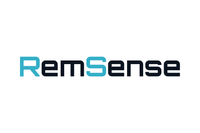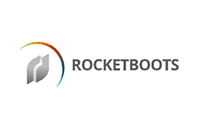Microsoft Unveils Expanded AI Solutions to Support Healthcare Sector
“We are at an inflection point where AI breakthroughs are fundamentally changing the way we work and live," said Joe Petro of Microsoft.

Microsoft (NASDAQ:MSFT) announced a range of new innovations under its Microsoft Cloud for Healthcare platform on October 10, saying it is looking to reshape healthcare delivery via artificial intelligence (AI).
Among the offerings is the introduction of healthcare-specific AI models in Azure AI Studio. These models have been built to manage complex healthcare data types, include medical imaging, genomic and clinical records data.
According to the company, by using these models, healthcare organizations will gain the ability to develop tailored AI applications and systems that address their unique operational needs.
Joe Petro, Microsoft’s corporate vice president of healthcare and life sciences solutions, emphasized that AI technology has reached a pivotal moment where it can fundamentally enhance the healthcare experience.
“We are at an inflection point where AI breakthroughs are fundamentally changing the way we work and live,” he commented. “Across the broader healthcare and life sciences industry, these advancements are dramatically enhancing patient care and also rekindling the joy of practicing medicine for clinicians.”
The World Health Organization has predicted a shortage of 4.5 million nurses globally by 2030, highlighting the need for technological support across the healthcare industry.
Microsoft partnered with organizations like Providence Genomics to develop the new AI models, which are geared at supplementing human analysis by offering deeper insights beyond traditional visual methods.
In the company's release, Carlo Bifulco, MD, chief medical officer at Providence, notes that a key feature of the AI models is their use in medical imaging and pathology; this makes them critical to diagnosing and treating diseases like cancer.
Another challenge facing healthcare providers is the handling and interpretation of vast amounts of unstructured data.
To address this, Microsoft Fabric, a unified platform for data management, now includes healthcare-specific data solutions that manage critical data more efficiently, offering healthcare providers better knowledge on patient care.
The platform offers several new tools that help users integrate conversational data, such as patient-doctor discussions, into broader analysis. Additionally, it provides the ability for companies to ingest and process public datasets related to social determinants of health, streamlining claims data for actionable insights.
Microsoft has also launched new capabilities for care management analytics, allowing healthcare organizations to leverage AI in identifying high-risk patients and subsequently optimizing their treatment plans.
Through collaborations with healthcare providers like Duke Health, Advocate Health and Intermountain Health, the firm has developed tools that assist in automating routine tasks, allowing nurses to focus on patient care.
Another major aspect of Microsoft’s initiative is the launch of the healthcare agent service in its Copilot Studio. According to the company, this service provides healthcare organizations with the ability to build AI agents to handle tasks such as appointment scheduling, patient triaging and clinical trial matching.
Early adopters, including Cleveland Clinic, have already integrated this system into their operations.
Don't forget to follow us @INN_Technology for real-time updates!
Securities Disclosure: I, Giann Liguid, hold no direct investment interest in any company mentioned in this article.
- Suki Secures US$70M to Drive AI-Assisted Healthcare Solutions ›
- Can AI Help Detect Cancer? Data Analysis Could Open Up Possibilities for Healthcare Industry ›


